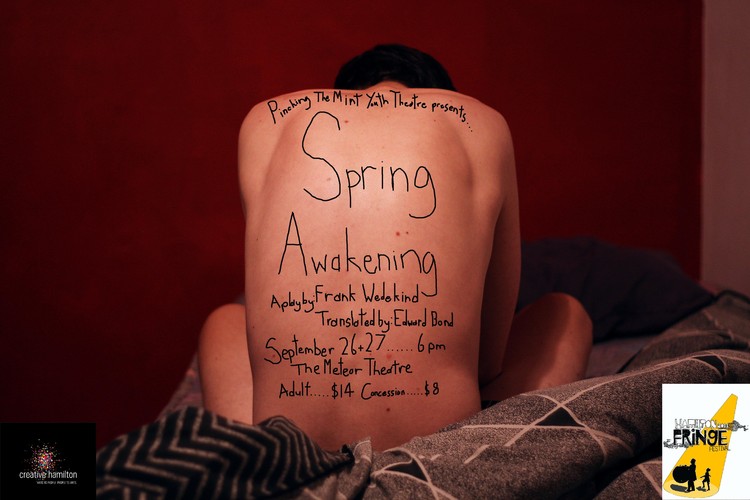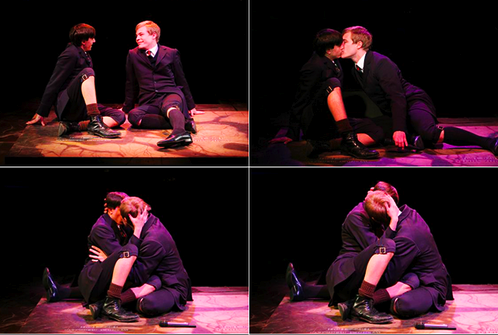
After reading this play, I was shocked by Frank Wedekind’s introduction of controversial subjects such as homosexuality and rape. The events of Wendla’s tragic death from an abortion, Moritz’s suicide from the disturbance of greater knowledge of his sexuality and failure to keep up in school, and Melchior’s departure from social norms caused him to be incarcerated into a reformatory, all progressed quickly throughout the play. The climatic moment was during Wendla’s rape, in that Melchior tried to assert his masculine dominance by performing the cruel act. The overall play left a sinister tone of despair in the end when Melchior hints at committing suicide as well.

What really came to me in the end was that everything including the adolescents’ fates could have been changed if they had more knowledge about sex, instead of parental repression and strict societal norms to keep it taboo. I think that it is rather more responsible to let children know about what occurs to their bodies and changing outlook in life, rather than suppress it and let them become curious to the point that they are harmed in the process. The moral of this play also brought back memories of The Catcher In The Rye, in that Holden realizes that he cannot fully protect the innocence of the children around him, so it is best and a natural part of their lives that they will experience the injustices and dark side of the world.

Even though this play originated way back in 1891, its repercussions to audiences around the world can still be felt. It brings to attention how important it is to recognize and express our sexuality in our world. How our bodies develop, and who we are attracted to was treated as a taboo subject in the past, but society has changed. We no longer have to be stuck within an inner closet because of fear of exposing our sexual orientation. Part of being human is experiencing mistakes, and nevertheless Wedekind’s play illustrates this in dramatic fashion. His play allows us to reflect and be “inspired” in a grotesque way.
 Adolescence is the most awkward and confusing time in an individual’s lifespan. He departs from the innocence and ignorance of childhood and yet doesn’t acquire the full maturity and enlightenment of adulthood. He is caught in limbo. Puberty perverts his body and thoughts and the world he once knew is suddenly turned upside-down. Frank Wedekind’s Spring Awakening, explores the difficulty of this period, amplified by the conservative ideals of the 19th century.
Adolescence is the most awkward and confusing time in an individual’s lifespan. He departs from the innocence and ignorance of childhood and yet doesn’t acquire the full maturity and enlightenment of adulthood. He is caught in limbo. Puberty perverts his body and thoughts and the world he once knew is suddenly turned upside-down. Frank Wedekind’s Spring Awakening, explores the difficulty of this period, amplified by the conservative ideals of the 19th century.



 ons are. Although Moritz commits suicide because he loses hope after trying his best in school and failing, people only listen to what the church tells them is right and wrong. This shows how the times have changed. People now question
ons are. Although Moritz commits suicide because he loses hope after trying his best in school and failing, people only listen to what the church tells them is right and wrong. This shows how the times have changed. People now question



















Recent Comments